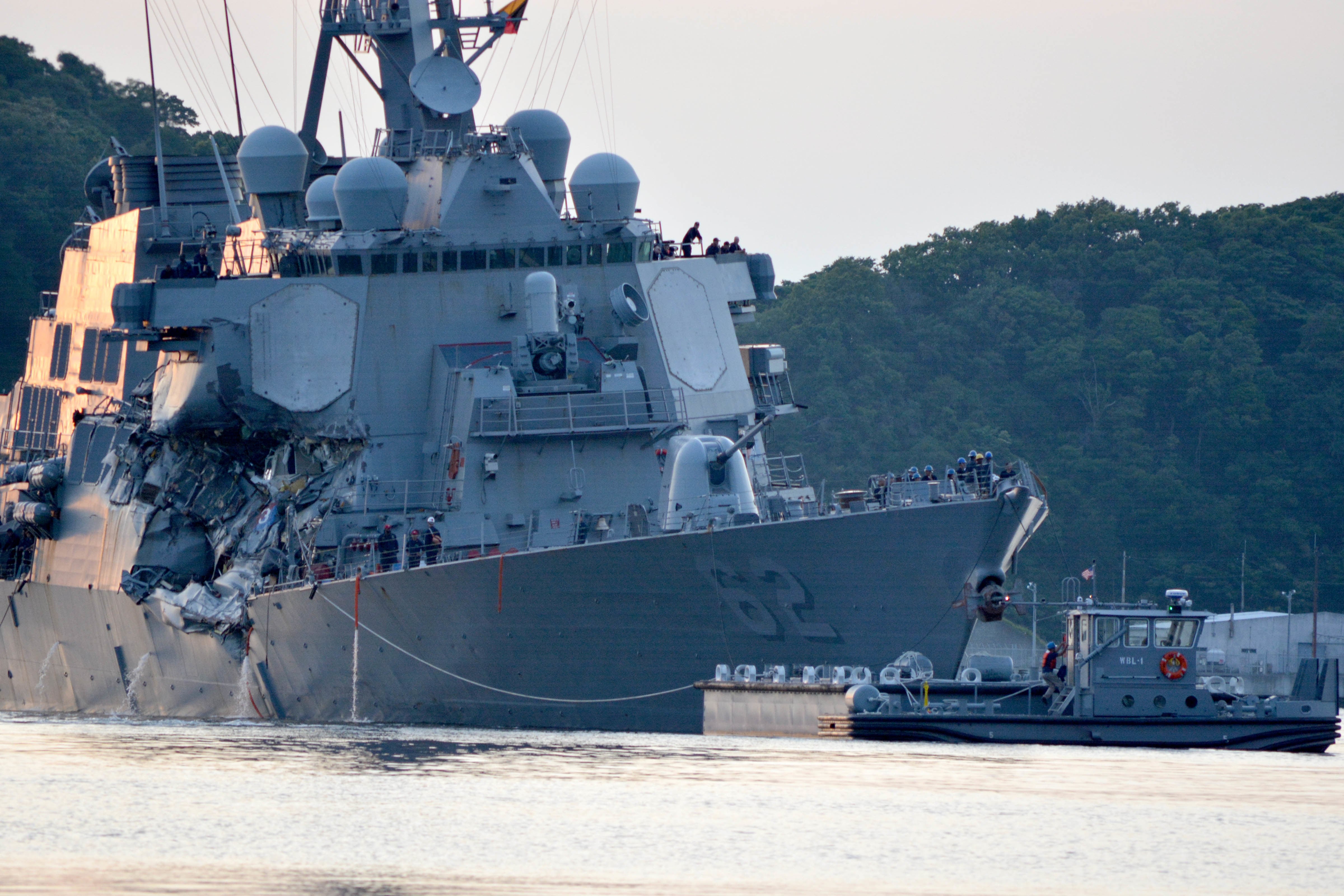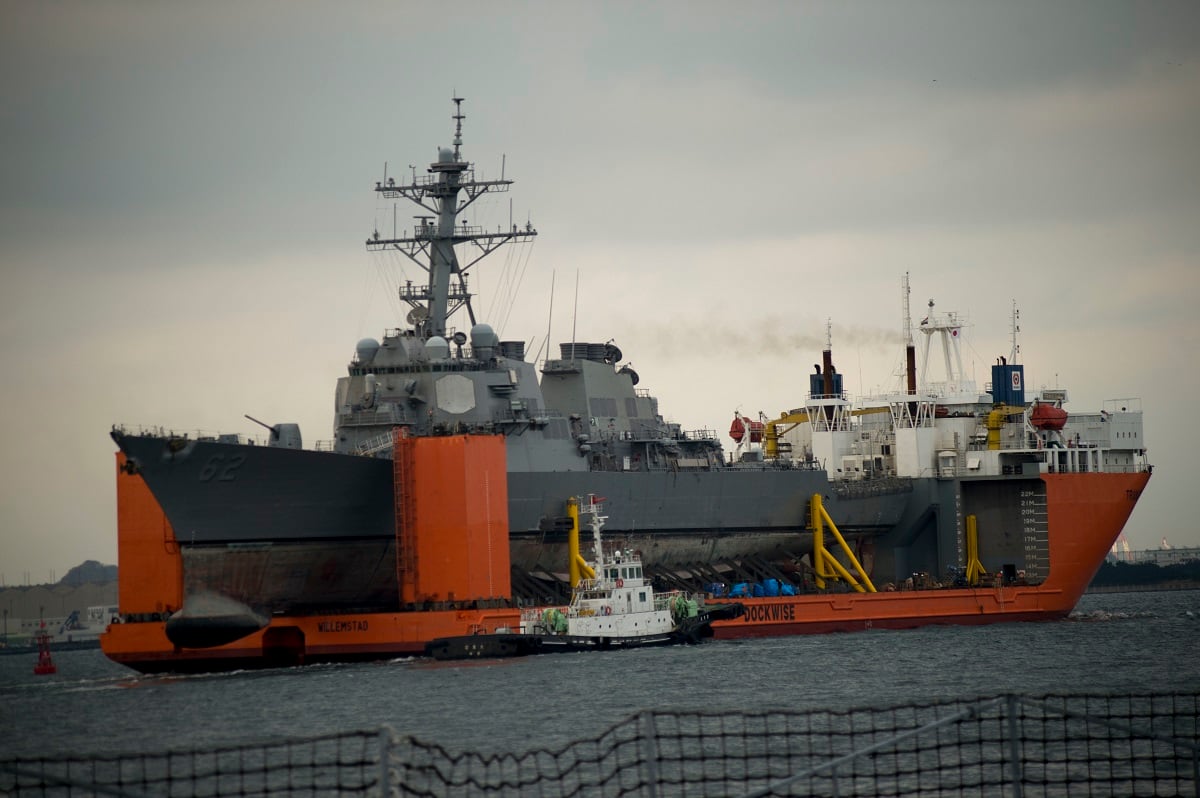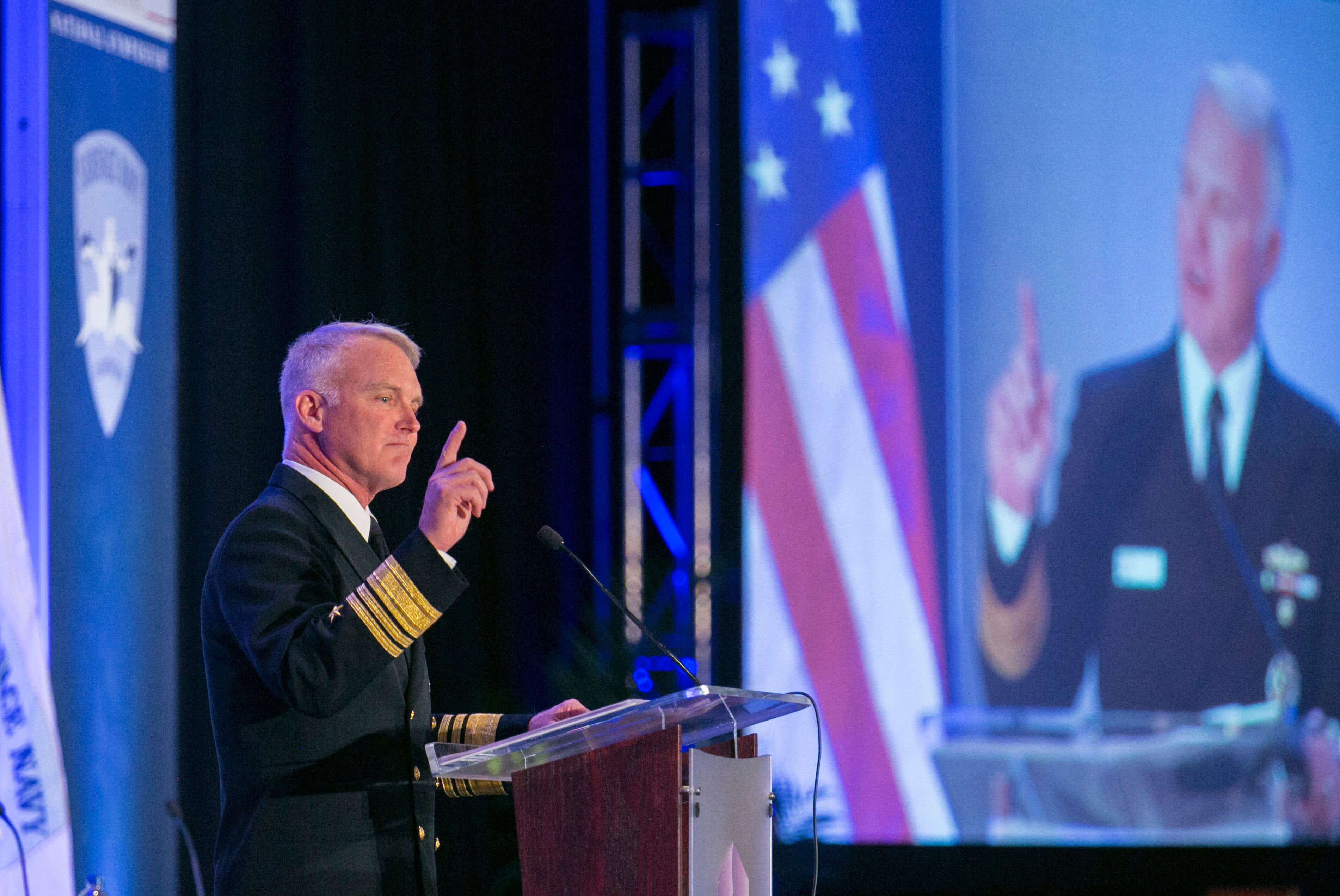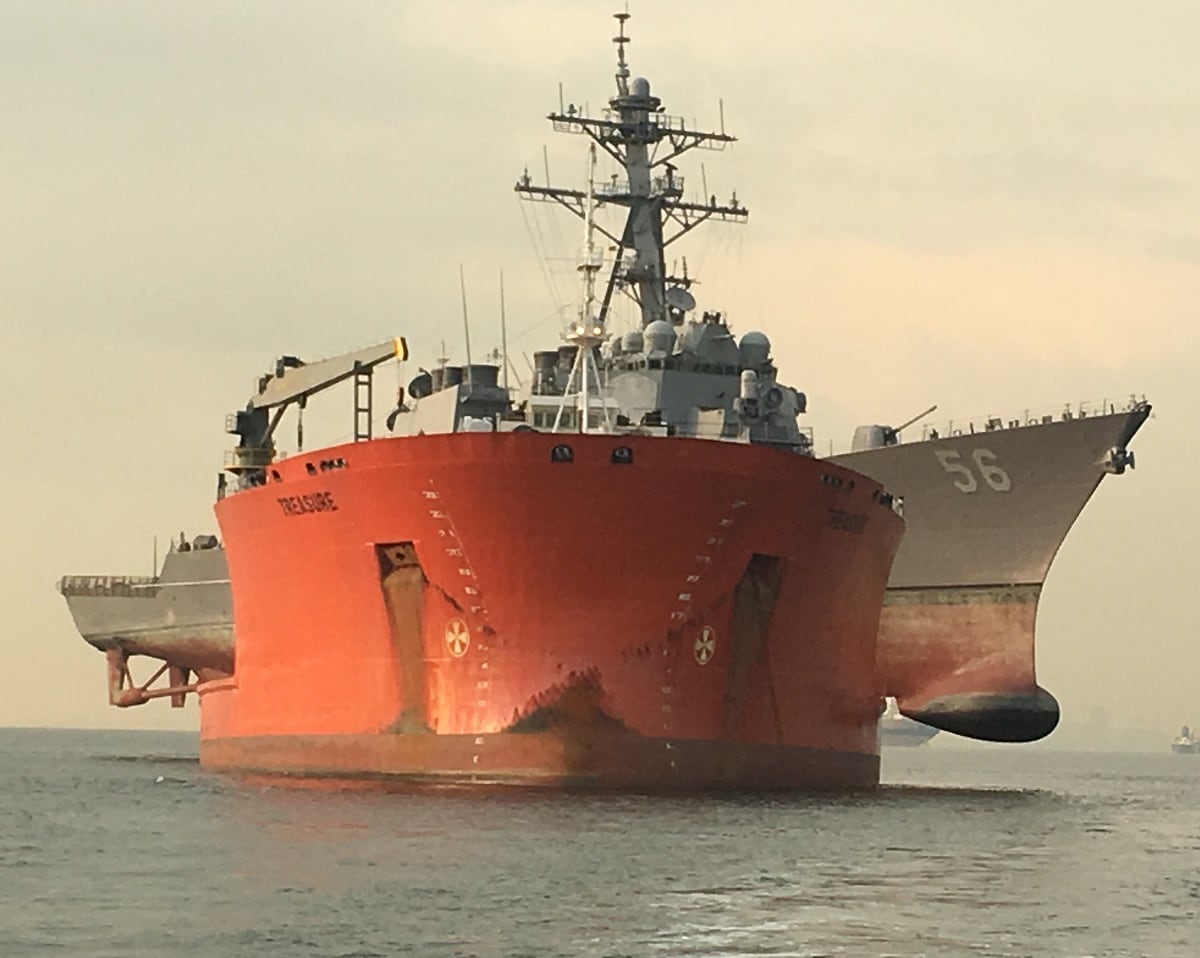WASHINGTON — The Navy’s decision to charge five officers with negligent homicide for their involvement in two fatal ship crashes marks a rare legal move that, if proven, could send them to jail for up to three years.
U.S. Navy officials and other experts struggled Wednesday to identify other naval accidents in recent history that triggered such a serious criminal charge, and couldn’t point to a case that led to a negligent homicide conviction.
The Navy on Tuesday laid out the charges that would be presented at what is called an Article 32 hearing, which will determine whether the accused will go to trial in a court-martial. No doubt paving the way for the severe charges was the significant loss of life in the two collisions. The USS Fitzgerald struck a commercial ship off the waters of Japan in June, killing seven U.S. sailors; the USS John S. McCain collided with an oil tanker in coastal waters off Singapore in August, killing 10 U.S. sailors.
“What’s different here is the loss of life,” said Eugene Fidell, an expert in military law who teaches at Yale Law School. “The victims’ families are obviously devastated by this, the Navy obviously feels it has an obligation to them as well to its own standards.”
RELATED

Still, he said it is highly unusual for such a case to actually go to trial, or for a commander to go to jail. Typically, he said, cases end in plea bargains and officers are more likely to be dismissed from the service, lose their retirement or receive other administrative punishments, depending on the seriousness of the charge.
In one of the few relatively recent similar cases, two Marine officers were tried on charges of negligent homicide and manslaughter for piloting a small twin-engine military plane into a cable holding a gondola in Italy in 1998. The wing of the twin-engine Prowler was flying too low when it sliced through the cable, sending 20 civilians in the cable car plummeting to their deaths. The two officers were found not guilty of those charges, but were later found guilty of obstruction of justice for destroying a video taken during the flight.
Commanders involved in other ship collisions have largely avoided any type of homicide or manslaughter charges.

When the USS Greeneville, a submarine, surfaced underneath the Ehime Maru, a Japanese fishing vessel, off Oahu in 2001, it plunged nearly three dozen students and instructors into the water, killing nine.
An investigation concluded the ship’s captain was in a hurry and rushed through mandatory safety procedures while demonstrating an emergency surfacing drill. The captain was eventually reprimanded by a military court of inquiry, but did not face court-martial. He retired with his full rank and pension. The victims’ families received a $16.5 million settlement from the Navy.
The Navy said Wednesday that preliminary hearings for the five officers charged in the Fitzgerald and McCain collisions will likely be held in the coming weeks in the Washington, D.C., region, but exact locations and dates are not set yet. The hearing officer will decide whether there is enough evidence for the cases will go to a trial by court-martial and what specific charges will be brought against the officers, based on that evidence.
RELATED

The maximum punishment for negligent homicide is three years in prison and dismissal from the Navy. For a conviction on that charge, Fidell said, prosecutors must prove the officer was guilty of “simple negligence” that resulted in the deaths.
In addition to the negligent homicide charge, several officers are also facing charges of dereliction of duty and endangering a ship. The maximum punishment for the dereliction of duty charge is three months in jail, and the maximum punishment for endangering a vessel is two years in jail.
The Navy conducted a series of investigations and reviews into the two collisions, concluding that the accidents were the result of poor judgment, bad decision-making and widespread training and leadership failures by the commanders and crew who didn’t quickly recognize and respond to unfolding emergencies.





